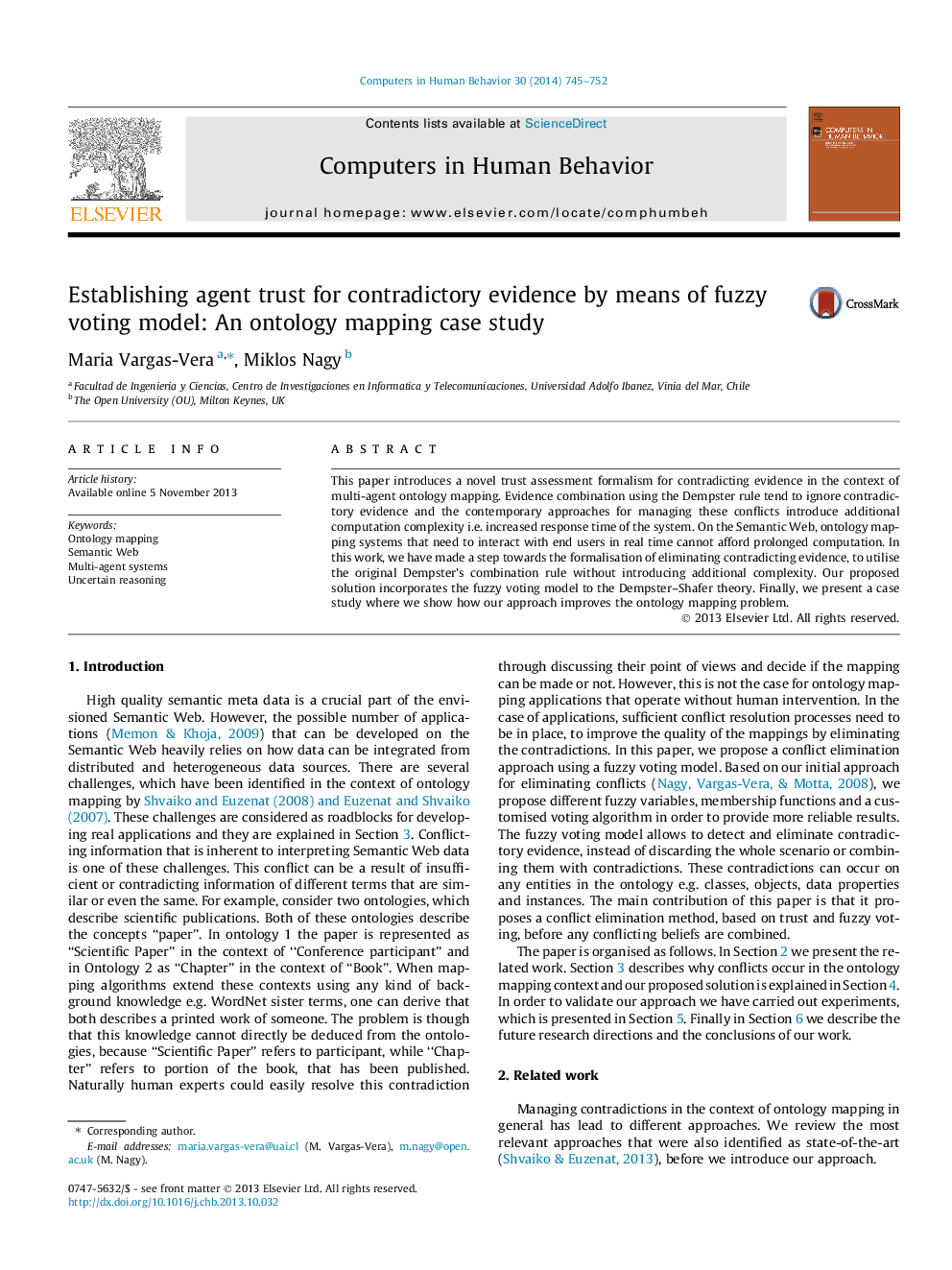| Article ID | Journal | Published Year | Pages | File Type |
|---|---|---|---|---|
| 350731 | Computers in Human Behavior | 2014 | 8 Pages |
•We introduce a novel trust assessment formalism for multi-agent ontology mapping.•We define a fuzzy voting model to eliminate contradicting evidence.•We define fuzzy variables to represent trust in mapping agents’s belief.•We present a case study based on benchmark mapping tasks.•Compared to simple belief combination 12% improvement of recall was achieved.•Compared to simple belief combination 16% improvement of precision was achieved.
This paper introduces a novel trust assessment formalism for contradicting evidence in the context of multi-agent ontology mapping. Evidence combination using the Dempster rule tend to ignore contradictory evidence and the contemporary approaches for managing these conflicts introduce additional computation complexity i.e. increased response time of the system. On the Semantic Web, ontology mapping systems that need to interact with end users in real time cannot afford prolonged computation. In this work, we have made a step towards the formalisation of eliminating contradicting evidence, to utilise the original Dempster’s combination rule without introducing additional complexity. Our proposed solution incorporates the fuzzy voting model to the Dempster–Shafer theory. Finally, we present a case study where we show how our approach improves the ontology mapping problem.
